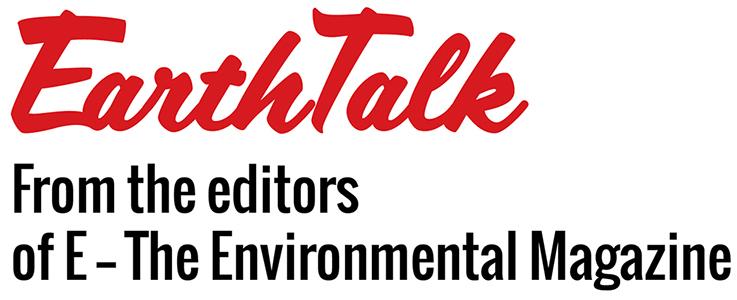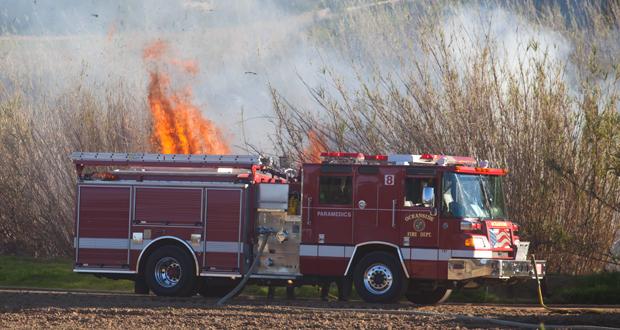EarthTalk: Is it really a good idea to use controlled burns to prevent wildfires?
Oceanside firefighters work to control a brush fire near West Coast Growers in 2015. (OsideNews file photo by Steve Marcotte)
June 24, 2023
Dear EarthTalk: Is it really a good idea to burn parcels of land on purpose in order to prevent the spread of actual wildfires? — C. Hudson, Mesa, California
Burning parcels of land intentionally, known as controlled burning, has long been a controversial practice aimed at reducing the risk of larger uncontrolled wildfires. The idea is to eliminate accumulated flammable material such as dead vegetation, brush and smaller trees, before it can fuel a destructive wildfire. But the effectiveness and potential drawbacks are subjects of ongoing debate among experts.
Proponents argue that controlled burns can mimic natural fire cycles, which play a vital role in maintaining ecosystem health. Fire-adapted plant species have evolved to rely on periodic burns to clear out competition, recycle nutrients and promote new growth. By reintroducing fire in a controlled manner, proponents say that we can restore ecological balance and reduce the likelihood of catastrophic wildfires.
 Moreover, controlled burns can help mitigate the intensity and spread of wildfires by creating firebreaks, barriers to stop or slow down an approaching fire. By removing potential fuel sources, firefighters gain a tactical advantage in managing wildfires, allowing them to better suppress and contain the flames.
Moreover, controlled burns can help mitigate the intensity and spread of wildfires by creating firebreaks, barriers to stop or slow down an approaching fire. By removing potential fuel sources, firefighters gain a tactical advantage in managing wildfires, allowing them to better suppress and contain the flames.
However, there are valid concerns and criticisms regarding the practice of intentional burning.
One key concern is the potential for controlled burns to escape control and become uncontrolled wildfires themselves. Despite meticulous planning and execution, there is always a risk of fire spreading beyond the intended boundaries, especially under unpredictable weather conditions.
Furthermore, some argue that prescribed burning may have unintended consequences for biodiversity. While certain fire-adapted species benefit from controlled burns, other sensitive or non-adapted species may suffer negative impacts. This is particularly concerning in areas with high levels of biodiversity, where the loss of rare or endangered species can have far-reaching ecological consequences.
Another consideration is air quality. Controlled burns release smoke and particulate matter into the atmosphere, which can pose health risks to nearby communities, especially individuals with respiratory conditions. Although measures are taken to minimize these impacts, the scale and frequency of prescribed burns must be carefully managed to avoid significant air pollution and subsequent health issues.
Additionally, there are concerns about the long-term effects of controlled burning on carbon emissions and climate change. While controlled burns release carbon dioxide into the atmosphere, some argue that the emissions are offset by the reduction in larger, uncontrolled wildfires. However, the overall carbon balance and net effect on climate change remain complex and subject to ongoing scientific study.
Given the complexity of the issue, it is crucial to consider local conditions, scientific research, and to involve stakeholders in the decision-making process to strike a balance between preventing wildfires and minimizing potential drawbacks. If wildfires are an issue in your region, your state probably has its own “prescribed fire council” — a group of local experts on forestry and fire — that may be able to help educate otherwise skeptical neighbors, planners and city/town councils on the merits of controlled burns.
More information:
Coalition of Prescribed Fire Councils
Column written by Roddy Scheer and Doug Moss. EarthTalk is produced by Roddy Scheer and Doug Moss for the 501(c)3 nonprofit EarthTalk. See more at emagazine.com. To donate, visit earthtalk.org. Send questions to question@earthtalk.org.
Columns represent the views of the individual writer and do not necessarily reflect those of the North Coast Current’s ownership or management.





